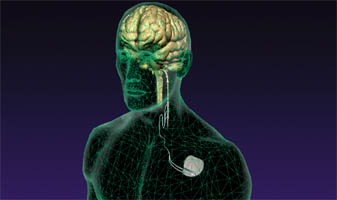Study: Trying harder makes it more difficult to learn language
Tuesday, 22 July 2014
When it comes to learning languages, adults and children have different strengths. Adults excel at absorbing the vocabulary needed to navigate a grocery store or order food in a restaurant, but children have an uncanny ability to pick up on subtle nuances of language that often elude adults. Within months of living in a foreign country, a young child may speak a second language like a native speaker.
Brain structure plays an important role in this "sensitive period" for learning language, which is believed to end around adolescence. The young brain is equipped with neural circuits that can analyze sounds and build a coherent set of rules for constructing words and sentences out of those sounds. Once these language structures are established, it's difficult to build another one for a new language.
In a new study, a team of neuroscientists and psychologists led by Amy Finn, a postdoc at MIT's McGovern Institute for Brain Research, has found evidence for another factor that contributes to adults' language difficulties: When learning certain elements of language, adults' more highly developed cognitive skills actually get in the way. The researchers discovered that the harder adults tried to learn an artificial language, the worse they were at deciphering the language's morphology -- the structure and deployment of linguistic units such as root words, suffixes, and prefixes.
"We found that effort helps you in most situations, for things like figuring out what the units of language that you need to know are, and basic ordering of elements. But when trying to learn morphology, at least in this artificial language we created, it's actually worse when you try," Finn says.
The findings support a theory of language acquisition that suggests that some parts of language are learned through procedural memory, while others are learned through declarative memory. Under this theory, declarative memory, which stores knowledge and facts, would be more useful for learning vocabulary and certain rules of grammar. Procedural memory, which guides tasks we perform without conscious awareness of how we learned them, would be more useful for learning subtle rules related to language morphology.
"It's likely to be the procedural memory system that's really important for learning these difficult morphological aspects of language. In fact, when you use the declarative memory system, it doesn't help you, it harms you," Finn says.
Still unresolved is the question of whether adults can overcome this language-learning obstacle. Finn says she does not have a good answer yet but she is now testing the effects of "turning off" the adult prefrontal cortex using a technique called transcranial magnetic stimulation. Other interventions she plans to study include distracting the prefrontal cortex by forcing it to perform other tasks while language is heard, and treating subjects with drugs that impair activity in that brain region.

No comments:
Post a Comment